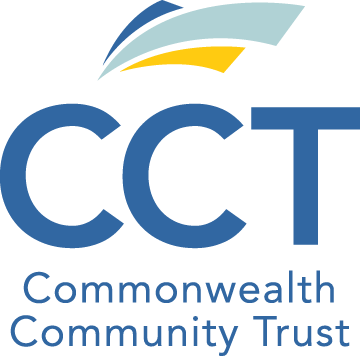Pooled Special Needs Trusts: Cost-Effective Trust Administration for Injured Workers: An Interview with Andy Reinhardt and Joanne Marcus
The article is based on an interview hosted by Alan S. Pierce of Workers Comp Matters, a Podcast on Legal Talk Network, with attorney Andy Reinhardt, an expert in Workers’ Compensation claims and past President of Workers’ Injury Law & Advocacy Group (WILG), and Joanne Marcus, MSW, Executive Director of Commonwealth Community Trust (CCT), a Pooled Special Needs Trust (PSNT).
Question: What is a Pooled Special Needs Trust (PSNT), and why are they helpful to attorneys who practice workers’ compensation law?
Joanne Marcus: A nonprofit organization administers special needs trust for people with disabilities for the purpose of enriching the quality of the life of the beneficiary. Your client with an award can benefit in many ways from setting up a PSNT. The funds are “pooled” for investment purposes, which I like to think of as a large mutual fund. Having the funds pooled keeps administrative costs low and allows the trust to have greater opportunity for growth. Each client has their own subaccount and electronic access to financial information or statements are mailed quarterly.
Question: How is the utilization of a PSNT helpful for a personal injury attorney’s client?
Andy Reinhardt: There are three instances in which a client may benefit from professional management of his or her injury award:
- Mental Incapacity – for example, an individual with a severe brain injury that would impact proper financial management; and
- Physical Disability – for example, a paraplegic or quadriplegic who cannot manage his or her own finances;
- Public Benefits – clients who receive means-tested government benefits such as Supplemental Security Income (SSI) and Medicaid may lose eligibility due to their injury award.
PSNTs can provide solutions to two problems: naming a trustee to manage the funds and affordability. The nonprofit organization acts as the trust administrator and manages and invests the funds in the pool and makes disbursement decisions.
Question: Are the assets of the monies that go into a pooled trust settlement proceeds or could they be a weekly workers’ compensation benefits check?
Andy Reinhardt: It is going to be either a lump-sum or a stream of payments like an annuity. In either event, the monies are payable to the pooled trust for the benefit of the beneficiary, and by virtue of the money being held by them, the PSNT can manage the money, invest it, and pay bills for clients. Weaving a structured settlement into a PSNT provides advantages and future financial security for the client.
Question: Give us a real-world example of when you chose for your client not to have full possession of these funds, and why a PSNT was a vehicle of choice to accomplish your goal?
Andy Reinhardt: For example, a client is brain injured and has no responsible family member that can manage the money, or it is not in the client’s best interest to have a family member as the trustee. The funds can be deposited in to a First-Party PSNT, and funds for a Medicare Set-Aside account can be nested within the First-Party PSNT. The professional trust administrator receives the deposits in order to pay the bills.
The First-Party Special Needs trust is helpful in Workers’ Compensation and Personal Injury claims:
- First-Party – established with the individual’s own funds as a result of a personal injury or workers’ compensation award.
Medicare Set-Aside – nested within a First-Party Trust and created to pay for future injuryrelated medical expenses and/or medications.
Question: So, the client’s $500,000 goes into the PSNT. How much does the client receive on a weekly or monthly basis, how does he or she receive it, and can it be varied? If the client wants to purchase a vehicle or use a larger sum of money than whatever he or she may be getting per month, how does that happen?
Andy Reinhardt: The PSNT acts as a fiduciary/trustee and will make decisions that are in the client’s best interest. However, up front, a game plan will be established that can be adjusted. For instance, we are going to know what the client’s monthly budget is, how much money the client needs on a regular basis, and if there is enough money to buy a vehicle, which is an exempt asset so the client can still qualify for Medicaid and SSI. The purpose is to provide for a client’s financial and other needs, and that can be done through a settlement where the money is administered by a PSNT.
SUMMARY
When presenting trust administration to colleagues and clients, it may be helpful to explain the benefits of a PSNT:
- Affordable, Comprehensive, and Specialized Services – A PSNT administrator specializes in working with individuals with disabilities and their representatives, and staff often
have degrees in social work and years of experience. - Oversight and Impartiality – Professional trust administration ensures the trust is used for the sole benefit of the Beneficiary, and the funds are spent sensibly and properly invested.
- Protection of Public Benefits Eligibility – PSNT staff members are knowledgeable about the rules governing SSI and Medicaid and will ensure these benefits are not jeopardized.
- The ease of setting up and accessing funds from a PSNT
Setting up a PSNT can alleviate the financial burden for clients through low cost methods of trust administration and management.
Nancy, Grandmother and Advocate of a CCT Beneficiary
"CCT has been wonderful in serving the financial needs of my grandson. They are always prompt in answering questions and suggesting how we can make something happen for him. He just turned 18 this year and we still plan on using this service." — Nancy, Grandmother and Advocate of a CCT Beneficiary

Holly, CCT Beneficiary
The first-person special needs trust, and the people who help manage the trusts, has been such a blessing. The combination has lifted a huge weight from my shoulders[.] — Holly, CCT Beneficiary
James, CCT Beneficiary
[I]t is people like you, who help those of us with disabilities which keeps us from living what would be “normal” lives, that is a blessing and gift that goes unseen, unheard of, and unrecognized. You make everyday tasks that most people take for granted but to me are frightening and debilitating and make them […]
Elaine, CCT Beneficiary
CCT has been a blessing and one of the smartest moves I’ve made. They are always there to help you with any questions you may have. I was able to purchase a new car and had work done on my house. I have a very blessed life, and CCT contributes to that[.] — Elaine, CCT […]
Grandmother of Beneficiary Kobe
"CCT made getting the wheelchair equip van we so much needed for our grandson the easiest purchase ever. Thank you CCT!!!" — Grandmother of Beneficiary Kobe
Rhonda, Mother and Advocate of a CCT Beneficiary
"CCT has been amazing. Very helpful with guiding us through this process." — Rhonda, Mother and Advocate of a CCT Beneficiary
Nancy, Grandmother and Advocate of a CCT Beneficiary
"CCT has been wonderful in serving the financial needs of my grandson. They are always prompt in answering questions and suggesting how we can make something happen for him. He just turned 18 this year and we still plan on using this service." — Nancy, Grandmother and Advocate of a CCT Beneficiary
Holly, CCT Beneficiary
The first-person special needs trust, and the people who help manage the trusts, has been such a blessing. The combination has lifted a huge weight from my shoulders[.] — Holly, CCT Beneficiary
CCT
Trusts
Professionals
Clients

*Disclaimer Statement: CCT is not a chartered bank or trust company, or depository institution. It is not authorized to accept deposits or trust accounts and is not licensed or regulated by any state or federal banking authority.
All Rights Reserved | Commonwealth Community Trust


